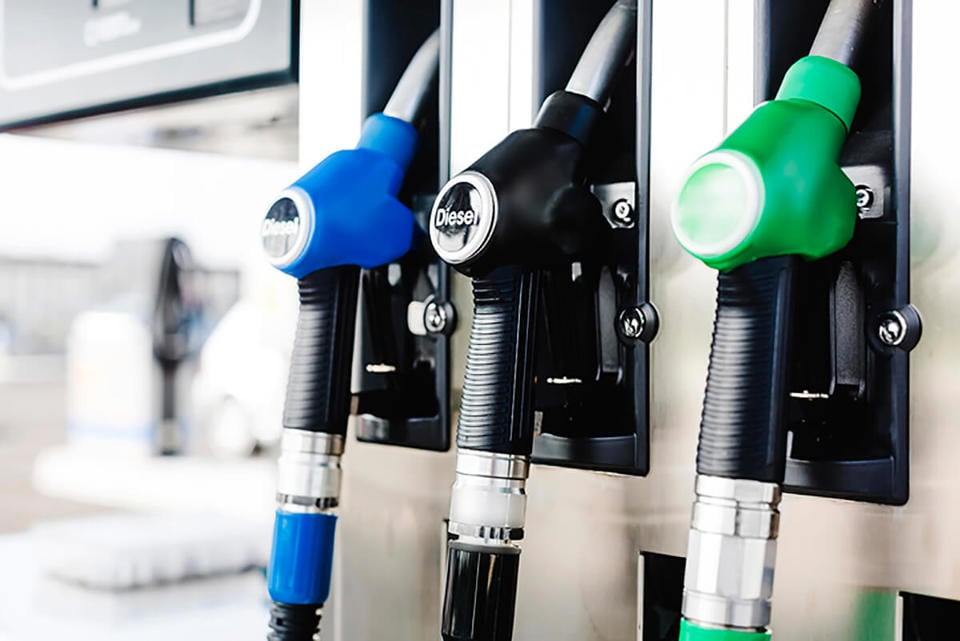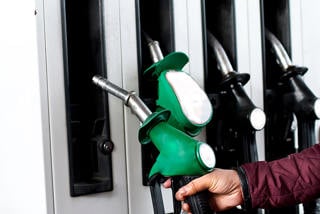The price of Brent crude has fallen but analysts are warning of more price hikes ahead, with £3 per litre of diesel a possibility.
Brent crude fell by 8% to trade at $103.68 per barrel on Monday (March 14), but MPs on the Treasury Committee were told this was a “lull before the storm”.
Nathan Piper, head of oil and gas research at financial services company Investec, warned of possible “continued increases in fuel prices”.
He explained: “If more stringent actions are imposed upon Russia, and five million barrels a day is truly taken out of the market, then oil prices would really have no ceiling.”
He added that diesel was particularly exposed to price rises, with half of the country's diesel imported and a third of these imports coming from Russia.
Dr Amrita Sen, director of research at Energy Aspects, said that petrol prices could rise to around £2.40 a litre and that diesel prices of £2.50 to £3 were “definitely in the realms of possibility”.
She also warned that the UK could follow Germany in introducing rationing measures which have already seen BP and Shell reduce diesel wholesales to industry.
She told MPs on the committee: “If we need to rebuild stocks over the summer so that we have a buffer over the winter… it is industry that will need to be curtailed and that's where the first set of rationing will have to come in.”
Piper said the only other option was for the Government to release some of its stockpiles of petrol and crude oil. “But it'll be industry that takes the brunt of any rationing initially,” he added.
Russia's invasion of Ukraine has sparked oil costs to surge worldwide, with record prices being recorded at the pumps on a daily basis.
The average price of petrol reached a new record of 163.46p on Sunday (March 13), up by 2.5p from Thursday (March 10).
Diesel, meanwhile, hit another record high on Saturday (March 12) at 173.67p, up 3.5p from two days earlier.
RAC fuel spokesman Simon Williams said: “The price hikes seen over the weekend are still a result of the oil price rise which began at the start of the month and peaked early last week at $137 a barrel.
“As the oil price has now fallen back, we should hopefully reach the peak and start to see prices going the other way to reflect the big drop in wholesale costs seen at the end of last week, subject to no further spikes in the barrel price this week.”
Peter Golding, managing director at FleetCheck, says fleets should adopt some form of strategy, because it appeared the conflict was unlikely to resolve quickly.
“The terrible situation in Ukraine is something that is playing on all of our minds and I think most people believe it could sadly persist for months or even years," he said.
“While it is not a major issue compared to the loss of life we are seeing, it is clear that fuel costs are rising to record levels quickly and substantially, and are unlikely to normalise any time soon. This is currently adding substantially to fleet costs on an almost day-by-day basis."
FleetCheck has devised a five point plan for fuel to help fleets. He explained: "While it is probably not possible to completely offset the impacts of the price rises we are seeing, taking greater control over costs is very much achievable.
“The plan was actually created in response to the initial spikes in fuel prices that we saw in the autumn caused by shortages – and so we know it works from the experiences of fleets that have adopted it – but it is even more pertinent today.”
The plan had been written largely with petrol and diesel cars and vans in mind but its principles, says Golding, applied almost equally to the large numbers of electric vehicles being added to fleets.
“While fuelling EVs represents a fraction of the cost of an ICE vehicle, there will still be substantial percentage price increases in energy very soon - and working to minimise the effects of these rises is very much part of fleet management best practice,” he added.
FleetCheck's five point plan
- Encourage more economical driving. Ask employees to drive smoothly by accelerating and braking gently, taking maximum notice of what is happening on the road ahead. Change up early and, as always, stick to the speed limit or lower – drive at 70mph and you’ll use up to 9% more fuel than at 60mph and up to 15% more than at 50mph, according to the AA.
- Explain to drivers how to prepare their vehicles. Some simple steps can have a positive impact on fuel consumption. Remove roofracks or other heavy items from vehicles that don’t need to be carried. Only use power-hungry devices such as air conditioning and rear window demisting when needed. Tyre pressures should checked as they can have a significant effect. Also, don’t leave the vehicle running before use.
- Measure your fuel use. A large number of fleets simply don't know how much fuel they use overall, per driver or per vehicle. The easiest way to put a monitoring system in place is to buy all petrol and diesel through specialist fuel cards. You can then access the data collected as software-generated reports.
- Analyse your fuel data. Fleet software provides the means to analyse the information you have gathered – enabling you to identify drivers and vehicles that are not achieving the kind of fuel consumption that you expect.
- Don’t be afraid to challenge employees. The single largest factor affecting fuel economy in the real world is driver behaviour. A disparity in fuel economy of more than 30% is not unusual between drivers in identical vehicles on similar routes. Let drivers know that they are being monitored, especially if you are using telematics, and talk to those who seem to be using excess fuel, offering help and advice.
Fleet News has teamed up with Allstar to bring you the fuel prices locator, enabling you to compare fuel prices and find the cheapest petrol or diesel in your area.
Even one penny per litre can make all the difference when filling up your fleet vehicles, potentially saving your company thousands of pounds a year.
Average pence per litre and per gallon petrol and diesel fuel prices in the UK regions includes England, Scotland, Wales and Northern Ireland. To access the latest fuel prices, click here.
























Login to comment
Comments
No comments have been made yet.